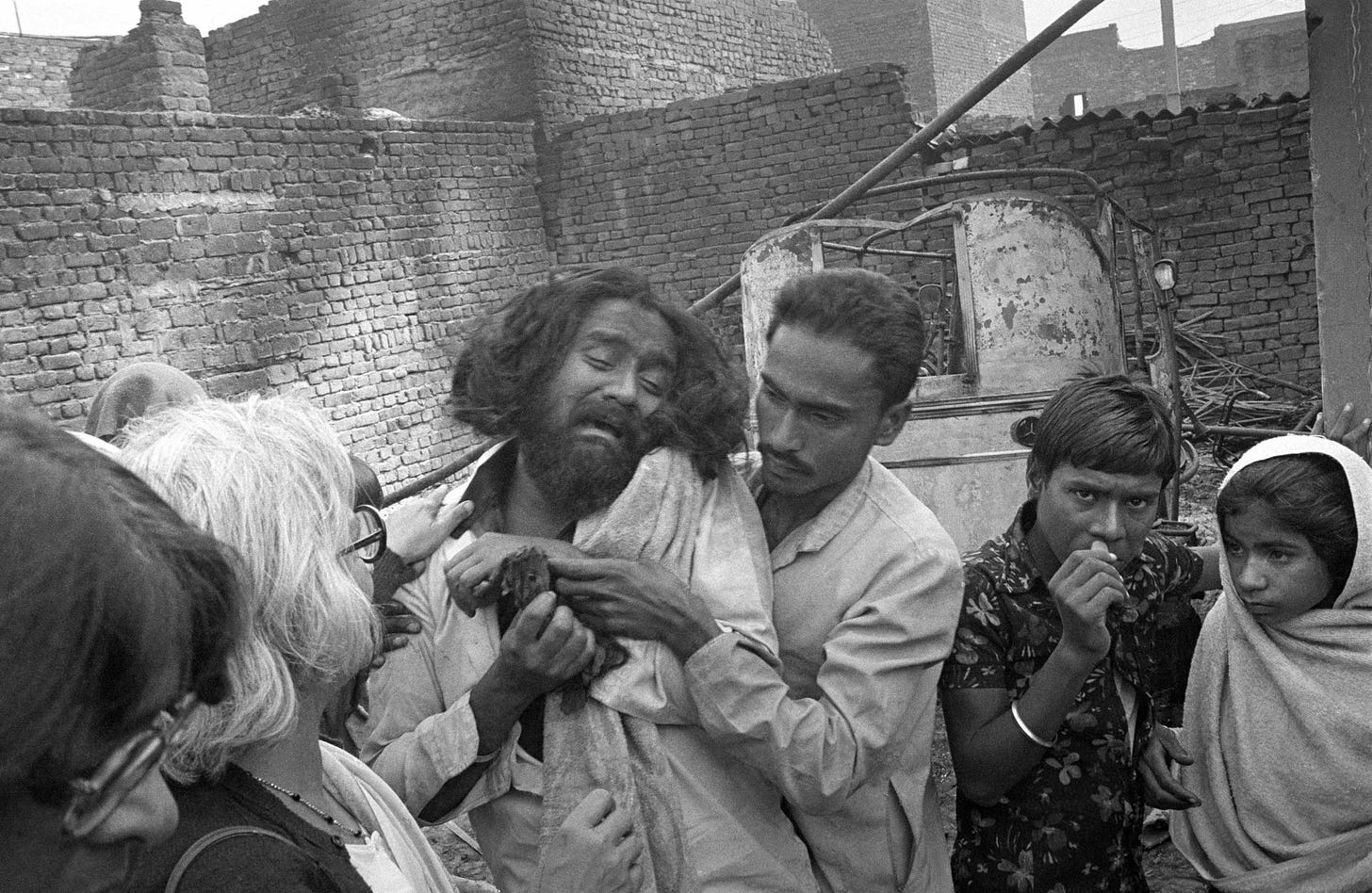Jessie Brar: Understanding The Intergenerational Trauma Of 1984
"However, no matter how old we get or how many new experiences we have, a part of what shapes us are the stories that are passed down to us."
Jessie Brar
November 4, 2022 | 2.5 min. read | Opinion
We look at the world through the lens of our own experiences.
I was born to a Sikh family in Canada. I grew up being molded by the world around me. I studied Psychology at Queen’s University. I traveled the world sharing stories about mental health and educating those around me on the topic. I found my place working in the space of equity and inclusion, fighting for those whose voices had been silenced.
These experiences shape my worldview.
However, no matter how old we get or how many new experiences we have, a part of what shapes us are the stories that are passed down to us.
Intergenerational trauma refers to unresolved traumas that pass through generations as it remains unhealed. Complex trauma occurs from living through repeated traumatic events throughout one’s life.
The paths my grandparents and mother took shaped the decisions that lead to who I am today. They survived many traumas throughout their life and each moment shaped them into who they are and the lessons they passed down. Anxiety runs through my family and I struggle with it every day.
My Nana and Nani were born in the 1930s in an India ruled by the British. As the world fought wars, Punjab was being torn in half and those who had lived peacefully alongside each other as brothers and sisters for years were now fighting against each other. The country, uprooted and coerced by the West, was separating into two new nations, both far from whole.
My grandparents were born into unrest that lasted most of their lives. Wars. Partition. Fear. Persecution.
My grandparents were constantly faced with being told that they didn’t belong in a country whose birth and evolution they had witnessed firsthand. We know what reality is for a Sikh living in India, and often we may feel like it’s an overtold story and why should we care as a diaspora of Canadians, Americans, British and more? However, these stories run deep in our blood and shape us more than we may even know.
My mother remembers being evacuated from her school in 1984 after Indira Gandhi was shot.
That is when my mother lost her innocence. Milestones that were supposed to be easy for her became riddle with anxiety. She sent me to school in fear every single day. Even when I was in university, she needed to hear from me every morning and night to make sure nothing bad had happened.
That year, mother lived in fear every single day. My Nana and Nani lived in fear every single day. It was a fear that words could not describe. My mother watched her father being taken away, knowing he may never come back.
This moment was one of the most traumatic in their lives. From this moment on, things would never go back to what they were but it’s a moment we barely speak about until this day.
The fear of not knowing if here father would come back still lives in her today. She stays up until I come home. She can’t sleep until everyone is in the house. Growing up these moments irritated me, but learning more about the trauma she experienced led me to understand more and showed me that there was a lot of healing left to do.
My grandparents lived through constant trauma until they left the country, only to come back and live through events they could have never imagined in 1984. That year, by the age of 15, my mother had witnessed so much violence firsthand, that when she was later beaten and abused in her marriage, she remained unfazed.
Trauma passed down from every generation builds and builds. I experience the burdens of trauma passed down through generations. These traumatic events shaped the decisions my family made and ultimately formed my life today.
I thought that if I didn’t see it, it didn’t affect me, but each year, I find myself drawn closer and closer to the stories of 1984. This trauma runs in every Sikh I lock eyes with today.
The events of that day led my family to choose a life far away from the land they once called home.
The lens through which I view the world lead me to where I am now, finding a way to educate those about mental health and injustice. The generations before us didn’t have the luxury of taking time to take care of their wellbeing. Our grandparents focused on finding shelter from a cruel world. Our parents focused on giving us a life better than the one they witnessed. Now, we get to focus on healing the scars that have been passed down from our ancestors and helping those we can find peace.
This week can be heavy, so check in on your elders and take some time to reflect. This trauma has been running through our bloodlines for far too long. It’s time we broke the cycle, stood up for injustice and found our way back to healing.
Jessie Brar is a writer, public speaker and mental health activist. She has been recognized as one of the top 100 Sikhs under 30. She has worked on mental health projects across the world and is currently an Equity, Inclusion and Anti-Discrimination Specialist. You can connect with Jessie on Instagram at @JessieeBrar.
Baaz is home to opinions, ideas, and original reporting for the Sikh and Punjabi diaspora. Support us by subscribing. Find us on Twitter, Instagram, Facebook, and TikTok at @BaazNewsOrg. If you would like to submit a written piece for consideration please email us at editor@baaznews.org.




